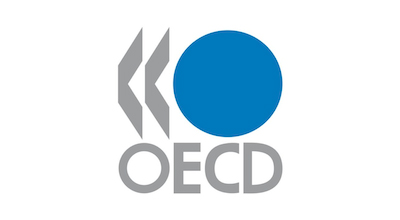Accountability Counsel Presents at Roundtable on the OECD Guidelines for Multinational Enterprises

On September 17, 2016, Kindra Mohr and Stephanie Amoako represented Accountability Counsel’s policy team at the “OECD Guidelines for Multinational Enterprises and the Law” roundtable at the George Washington (GW) University Law School. The roundtable, hosted by the Organization for Economic Co-operation and Development (OECD), GW Law School, and the International Bar Association, brought together legal practitioners, business professionals, and civil society representatives to discuss the impact of the OECD Guidelines for Multinational Enterprises on legal practice, and consider how the guidelines can strengthen responsible business conduct.
Kindra, Accountability Counsel’s Policy Director, presented on a panel on the OECD National Contact Point (NCP) system. Each of the 46 countries adhering to the OECD Declaration on International Investment and Multinational Enterprises (of which the guidelines are a component) is required to establish an NCP. NCP functions include promoting the guidelines, handling enquiries, and facilitating the resolution of problems arising from the non-observance of the guidelines. In this last function, the NCP receives ‘Specific Instance’ complaints and provides an avenue for the complainants, often civil society organizations or labor unions, to reach a settlement with the multinational enterprise on the complaint.
Kindra’s presentation highlighted the potential of the NCP system to be an effective mechanism to achieve redress for harms caused by multinational enterprises. While some NCPs are not yet fully functional, the NCP system has the capability of serving as a vehicle to ensure corporate accountability and provide individuals, communities, and labor unions with a forum for addressing negative human rights and environmental impacts. Even the G7 has recognized the untapped value of the NCP system, recently calling for the strengthening of the NCPs as a mechanism for remedy and encouraging peer reviews and peer learning on the functioning and performance of NCPs.
Improvements to accessibility and transparency in the Specific Instance process could greatly enhance the chances that even the most vulnerable populations have access to meaningful remedy. To this end, Accountability Counsel has been active in advocating for improvements to the NCP system, through our contributions on the U.S. NCP Stakeholder Advisory Board and as a Coordination Committee member of OECD Watch. For example, OECD Watch’s “Remedy Remains Rare: An Analysis of 15 Years of NCP Cases and their Contribution to Improve Access to Remedy for Victims of Corporate Misconduct” provides detailed recommendations for NCPs to improve their effectiveness in promoting adherence to the guidelines and in providing access to remedy.
To learn more about the NCPs, please visit our work with communities in Bangladesh and Russia, and learn about our policy advocacy targeting the NCP system as a whole and the U.S. NCP in particular.

